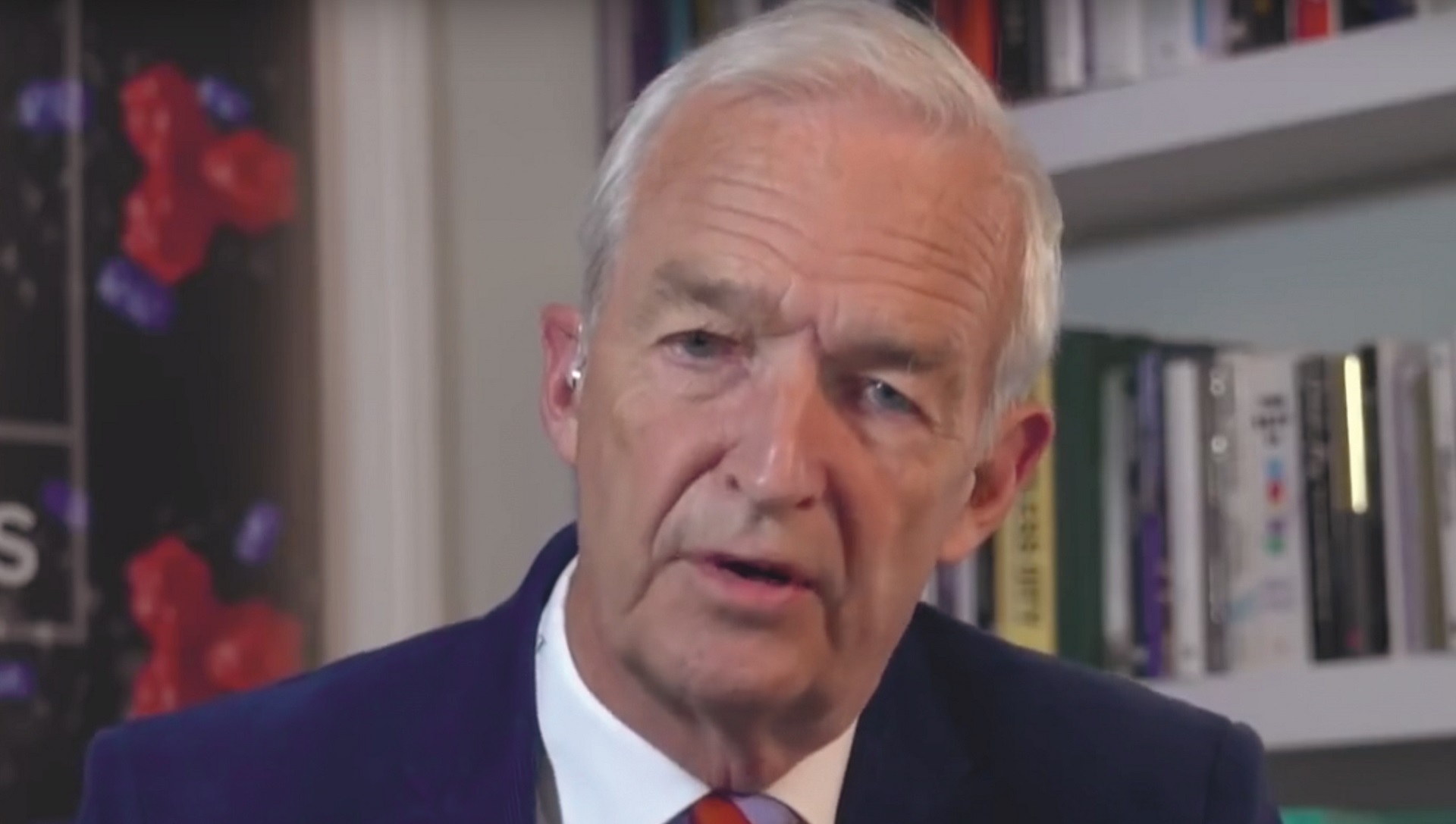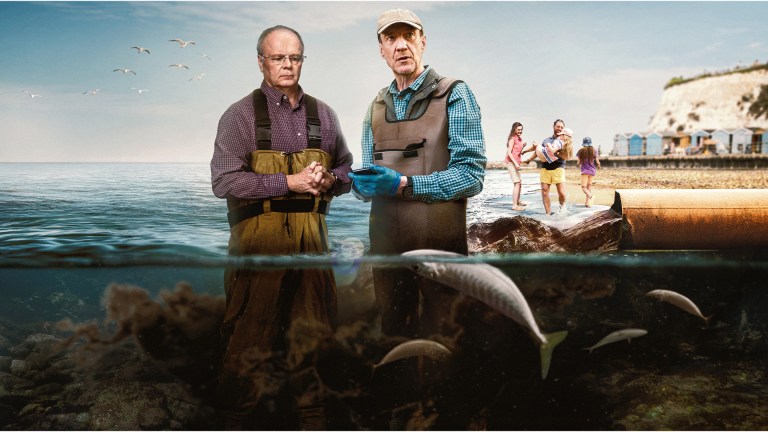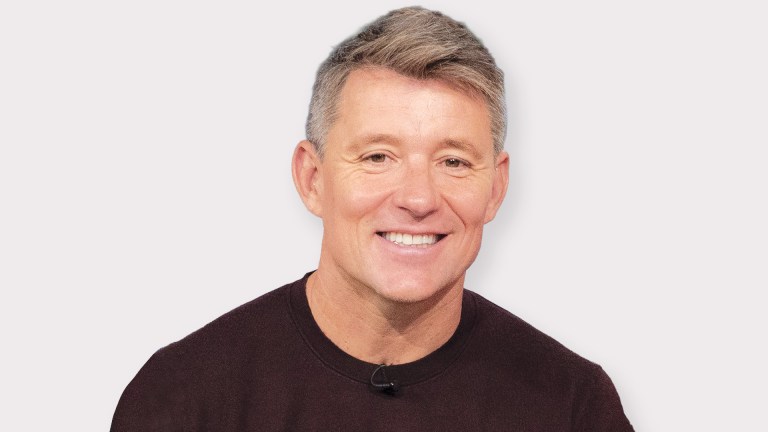This is partly because, in recent years, there’s not been a huge amount of trust or faith in politicians. They don’t have the authority they had when we were children. Of course, in those days, they didn’t really have to give an account of themselves the way they do today. Being a minister is a tougher job now. But we have a duty to interrogate. And we have to do that responsibly.
I am currently a presenter who is a prisoner in his own home.
It’s an alien place to be doing what I do when I’m at work.
I have a process I’ve been practising for 31 years. In the day I am rooted at my desk, with the editor across from me. Then the witching hour comes. We go into the studio for a run through before we go live at 7pm. There’s only one thing you have to do and that is engage with the viewer. That’s not as easy in your own home.
A huge studio camera was left on my doorstep. I had to bring it inside and was instructed how to put it up and what plugged in where. It’s all remotely driven from ITN. I’m told that even three years ago we couldn’t have done it. It’s modern technology at its best.
My wife’s nephew lives upstairs. Fortunately he is technically literate. Last night, there was a catastrophe 20 minutes before transmission. The pin and socket in the incoming internet snapped off and he fixed it. So without him I wouldn’t be able to do it, even though he’s nothing to do with ITN, he just happens to be an organic part of our family.
Advertising helps fund Big Issue’s mission to end poverty
But it is difficult to be extracted from what is essentially another family at Channel 4 News. We are a close-knit group who work together, spin ideas off each other and check facts.
It’s a very biological enterprise. You resort to different parts of the editorial body to extract information or discuss what you’ve concluded. That is absent in social isolation. You can email, phone or text, but people are busy. And it’s more invasive than trundling over to their desks and asking ‘What do you think of this?’
One day in the future, Covid-19 won’t be our top story. How might that feel? It’s a good question, isn’t it? I haven’t even been able to conjure it. Obviously the truth is there could be some awful incident we could lead with. But there hasn’t been. Of course there is Syria, there is Iraq, there is Afghanistan – all the possible places of explosion. But alas, explosion is a way of life in those places and it rarely makes the top story.
I think a lot about life after coronavirus. My dad was in the church, and he had this saying: “Out of evil cometh good.” I’m an optimist enough to think that the world may be a better place after this. That we will love each other more. We will care more. We will provide more. And that we will brutally attack inequality.
Your publication is driven by the need to tackle homelessness, and I think this pandemic has brought home the agony of those who have very little respite. I’m finding every interaction, even though I’m not meeting people face to face, is much kinder than I’ve ever known. It is more tolerant. It’s more concerned. I think it is bringing out the best in people. So there can be a better future, and we must all work for it.
More than anything, what I’ve learned in this crisis is how much people depend on good journalism
More than anything, we have to look at how we bully the Earth. I find myself rummaging around philosophically for the origins of this pandemic. What distortion of the atmosphere of the Earth itself could have contributed to it?
Advertising helps fund Big Issue’s mission to end poverty
I confess I’ve been so embroiled in the day-to-day, I have never attempted to conjure the moment this might stop. But there will be a before and after for journalists and the news media. Although I’m not sure even this will rid us of fake news or the manipulation of the news.
If you go back to the Second World War or even the Boer War, journalism at times of crisis is of paramount importance. But I can’t say that all journalism, as it exists today, quite rises to that definition. Luckily, there are enough of us trying with every sinew to tell the truth, to report the truth and to interrogate everything we’re told. Just like The Big Issue.
So this moment will be a milestone. More than anything, what I’ve learned in this crisis is how much people depend on good journalism – and what an enormous responsibility that imposes upon us all.
We have to earn the viewer’s trust and nurture it. We can never take it for granted. If journalists and news organisations want to keep these new and larger audiences engaged in news and current affairs after the crisis, we need to speak truth to power. And we need to be more compassionate and caring of the whole range of the community among whom we report.
When I get back to the office, I will listen more and speak less. And I will remember what my namesake in Game of Thrones was told: “Jon Snow, you know nothing!” Especially when it comes to being prepared for a pandemic.
Jon Snow was talking to Adrian Lobb.
Advertising helps fund Big Issue’s mission to end poverty
Channel 4 Newsairs nightly at 7pm
This article is part of The Big Issue’s ongoing After The Virus series. To read more brilliant people plotting a path for Britain beyond the pandemic lockdown, head here.
The piece originally appeared in Big Issue #1408. Pick up your copy from The Big Issue app, available now from the App Store and Google Play, or susbcribe to the magazine in the app or at bigissue.com/subscribe.









